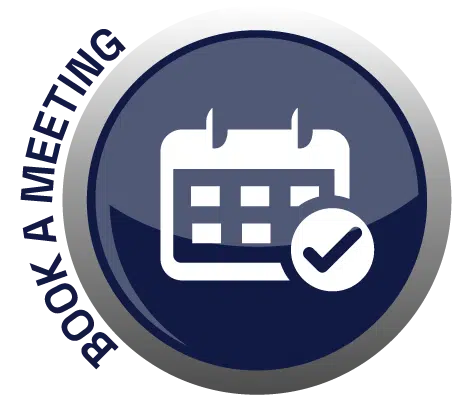If you’re wondering how long it will take to master web development, the answer isn’t as straightforward as you might hope. Factors like your commitment level, prior knowledge, and learning approach all play pivotal roles. While some may grasp the basics within a few months, truly honing your skills is an ongoing process. So, before you embark on this journey, consider what it truly means to become proficient in web development and the steps you can take to expedite your learning curve. Let’s discuss further: “How Long Will It Take to Learn Web Development?”
Key Takeaways
- Learning time varies based on dedication, prior experience, and chosen educational path.
- Practical skills can be gained within 3-6 months of learning HTML, CSS, and JavaScript basics.
- Progress speed influenced by distractions, prior knowledge, and personal commitments.
- Consistent practice, overcoming challenges, and dedication are crucial for skill improvement.
- Mastery in web development takes time, so set achievable goals and practice consistently.
Learning Timeframe for Web Development
Embarking on your journey in web development, the learning timeframe can vary based on your dedication, prior experience, and chosen educational path. Learning the basics of HTML, CSS, and JavaScript could take around 3-6 months. Gaining practical skills within the same timeframe is achievable.
However, the overall time to become proficient in web development is influenced by various factors like distractions, prior knowledge, and personal commitments. It’s essential to consider how work, family obligations, and self-doubt might impact your learning pace.
Noble Desktop offers quality classes and bootcamps that provide practical training for those looking to enhance their web development skills efficiently. By dedicating time and effort to learning consistently, you can shorten the learning curve and progress towards becoming a competent web developer.
Factors Affecting Learning Duration
Considering your prior knowledge, personal commitments, and learning environment significantly impacts the duration it takes to become proficient in web development. Your existing familiarity with coding concepts can expedite the learning process, while juggling family responsibilities or a full-time job may extend the timeframe.
The learning environment you choose, whether it’s a structured bootcamp, self-paced online courses, or formal education, will also influence how quickly you grasp web development skills.
Additionally, your dedication to consistent practice and willingness to overcome challenges play a vital role in the speed of your progress. Distractions, self-doubt, and lack of focus can hinder your learning journey.
To optimize your learning duration, create a study schedule, set achievable goals, and seek support from the web development community. By acknowledging these factors and tailoring your approach to address them, you can streamline your path towards mastering web development efficiently.
Realistic Learning Expectations
Setting realistic learning expectations is crucial for your journey in mastering web development efficiently. Here are three key points to consider:
- Progress Takes Time:
Understand that web development is a complex field, and mastery doesn’t happen overnight. Be patient with yourself as you navigate through new concepts and skills. - Practice Consistently:
Consistent practice is key to improving your web development abilities. Set aside dedicated time each day or week to work on coding challenges, projects, or online courses to reinforce your learning. - Embrace Mistakes:
Mistakes are a natural part of the learning process. Instead of getting discouraged, use errors as learning opportunities to enhance your skills. Embracing mistakes will ultimately make you a better web developer.
Importance of Prior Experience
Progressing in mastering web development efficiently requires acknowledging the significance of prior experience in enhancing your skills and understanding of the field.
If you have a background in related areas such as graphic design, computer science, or programming, you may find certain concepts more familiar and grasp them quicker. Prior experience can help you navigate through the complexities of web development tools, languages, and frameworks with more ease.
Whether you have dabbled in creating websites before or have basic coding knowledge, these foundations can serve as a solid base for your learning journey. Embrace your prior experiences, no matter how small they may seem, as they can provide valuable insights and shortcuts in your quest to become a proficient web developer.
Balancing Learning With Other Obligations
To balance learning web development with other obligations, prioritize your tasks and manage your time efficiently. Here are three key strategies to help you navigate this challenge:
- Create a Schedule: Allocate specific time slots each day dedicated to learning web development. By establishing a routine, you can ensure consistent progress without neglecting other responsibilities.
- Set Realistic Goals: Break down your learning objectives into manageable tasks. Setting achievable milestones will help you stay motivated and track your progress effectively.
- Utilize Resources Wisely: Make the most of online courses, tutorials, and mentorship opportunities. Leveraging available resources can enhance your learning experience and optimize your time investment.
Frequently Asked Questions
Can Web Development Be Self-Taught Without Formal Education?
You can definitely teach yourself web development without formal education. Online resources, tutorials, and practice projects are plentiful. Stay committed, seek guidance when needed, and build a strong portfolio to showcase your skills.
Are Online Courses as Effective as In-Person Training for Web Development?
Online courses offer flexibility, affordability, and quality training in web development. They can be as effective as in-person training, allowing you to learn at your own pace while still gaining valuable skills and knowledge.
Is It Necessary to Learn Multiple Programming Languages for Web Development?
To excel in web development, you should learn multiple programming languages. They cater to different aspects like front end, back end, and databases. Embrace the challenge, expand your skills, and unlock diverse career opportunities.
How Can One Stay Motivated During the Learning Process?
To stay motivated during the learning process, set small achievable goals, celebrate progress, and connect with a supportive community. Remember your passion for web development and embrace the learning journey as a chance to grow.
What Role Does Creativity Play in Becoming a Successful Web Developer?
Creativity is pivotal in your journey as a web developer. It fuels innovative designs, user experiences, and problem-solving. Embrace your unique ideas to stand out in the competitive field. Let your creativity shine through your coding work.
Conclusion
In conclusion, the time it takes to learn web development can vary depending on your dedication, prior knowledge, and learning path.
While mastering the basics can take around 3 to 6 months, remember to set realistic expectations and leverage your prior experiences to accelerate your learning.
Stay consistent, practice regularly, and balance your learning with other commitments to make the most of your web development journey.







Add Comment